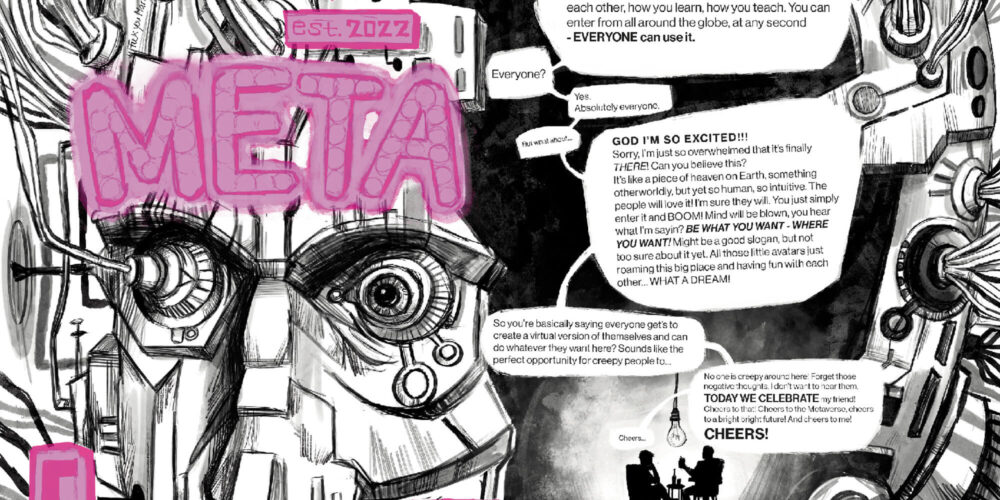
Media Arts
-

Challenging Power and Space Through Digital Art
Borders, technology, and power—Enar de Dios Rodríguez challenges us to rethink the spaces we live in through her award-winning, thought-provoking audiovisual essay, Ecotone.
-
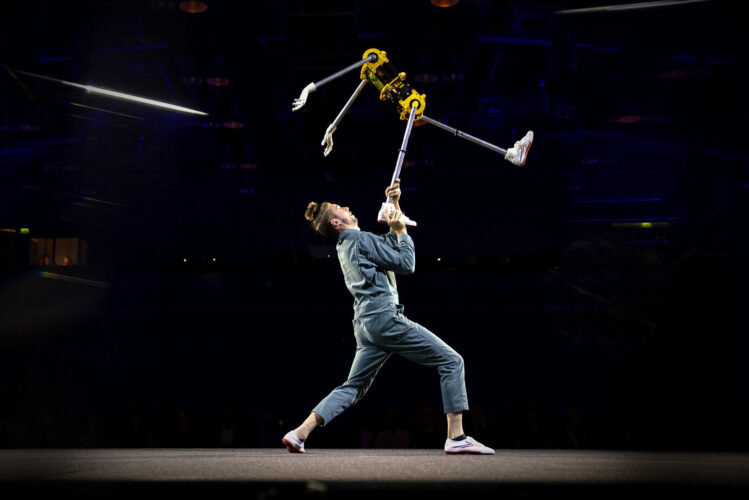
A record: More than 112,000 visits to Ars Electronica 2024
Once again, the Ars Electronica Festival has shown what it is all about: creating space, time and an atmosphere in which people can exchange ideas and inspire each other.
-
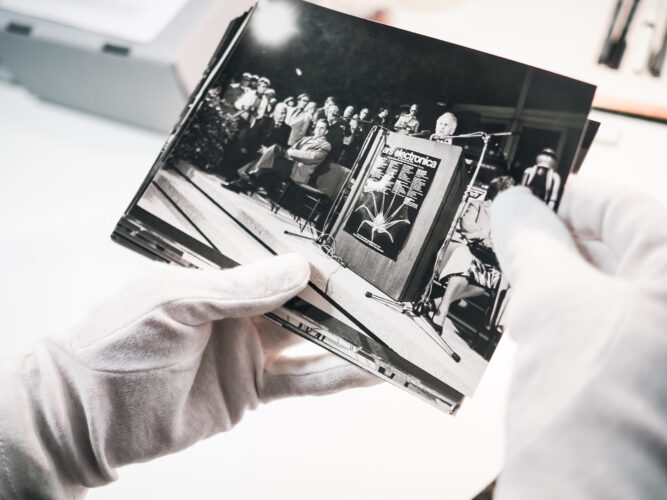
How the Ars Electronica Archive Reflects the Development of Artificial Intelligence
What do an archive of media art and the history of AI have in common? And can these histories perhaps be intertwined in order to gain a better insight into what has fascinated and preoccupied people at different times with the idea of “artificial intelligence”?
-
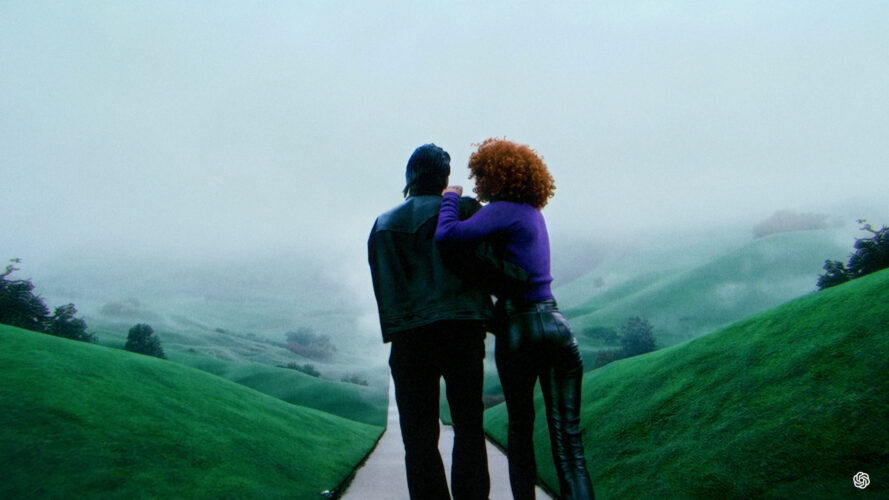
A Fall Down Memory Lane
A trip and a fall down memory lane, tracking the relationship of a couple from middle school into the afterlife. “The Hardest Part” is the winner of the AI in Art Award 2024.
-
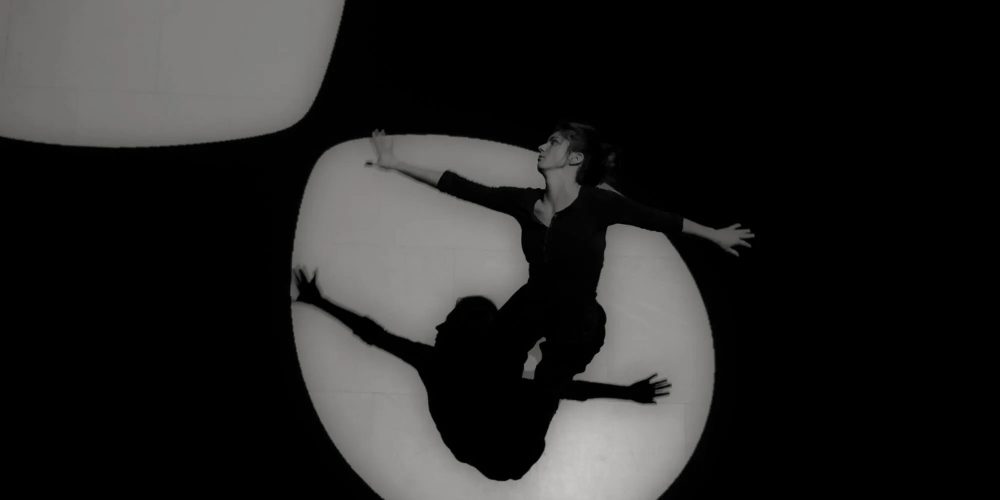
Where art merges with its digital future
The 50th anniversary of the Art University marks five decades of cultural progress in Linz. We talked to Rector Brigitte Hütter about the digitization of art.
-
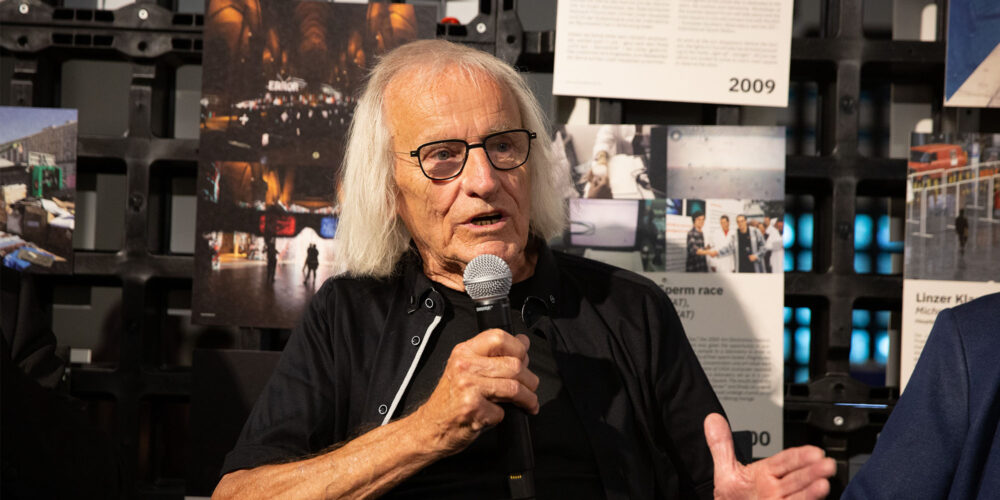
Walter Haupt 1935 – 2023
The inventor of the Klangwolke is dead. An obituary for Walter Haupt, who died in Munich on May 17, 2023 at the age of 88.
-
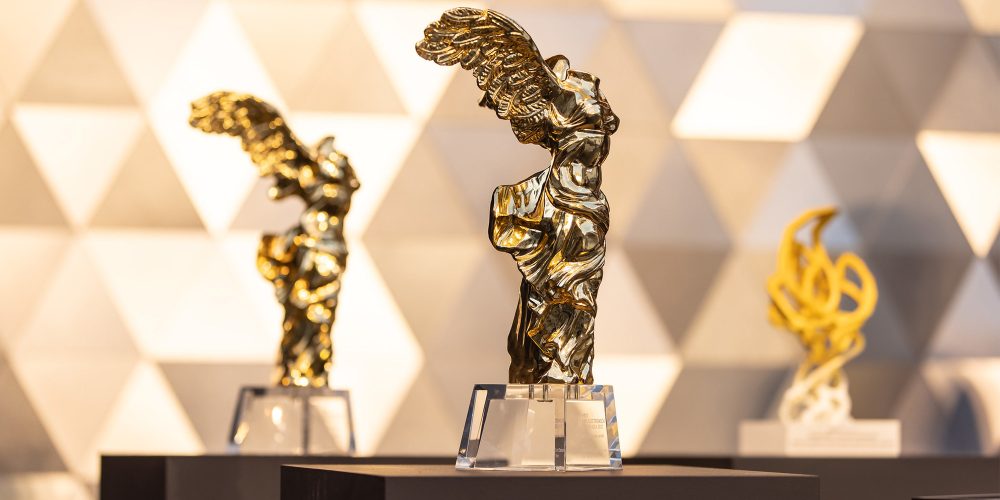
Legacy of the past and visions on the future
A new category, a new prize and a legacy begun in 1987: the Prix Ars Electronica is once again looking for exceptional media art.
-
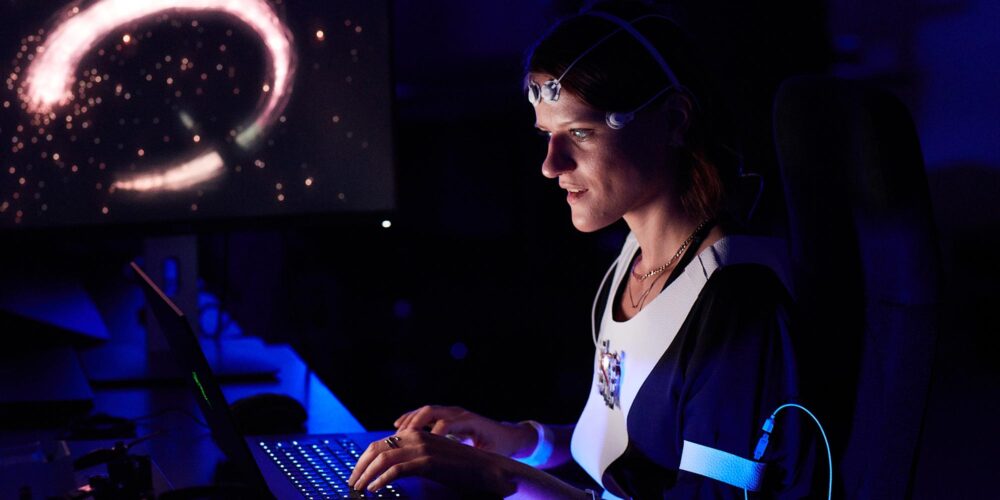
That’s why we are so fascinated by technology
We experiment, develop and tell stories with technology. The first part of Ars Electronica’s 2022 Year in Review shows how.
-
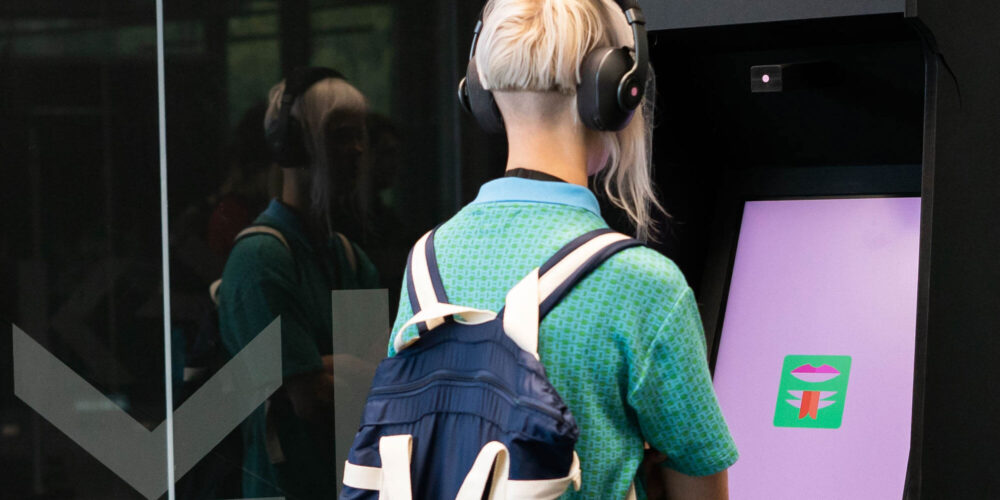
Humanity in-between Videogames and Neurofeedback
With 5 interactive installations, Belgian artist Roel Heremans makes the ethical framework for innovation in our society playfully tangible.
-
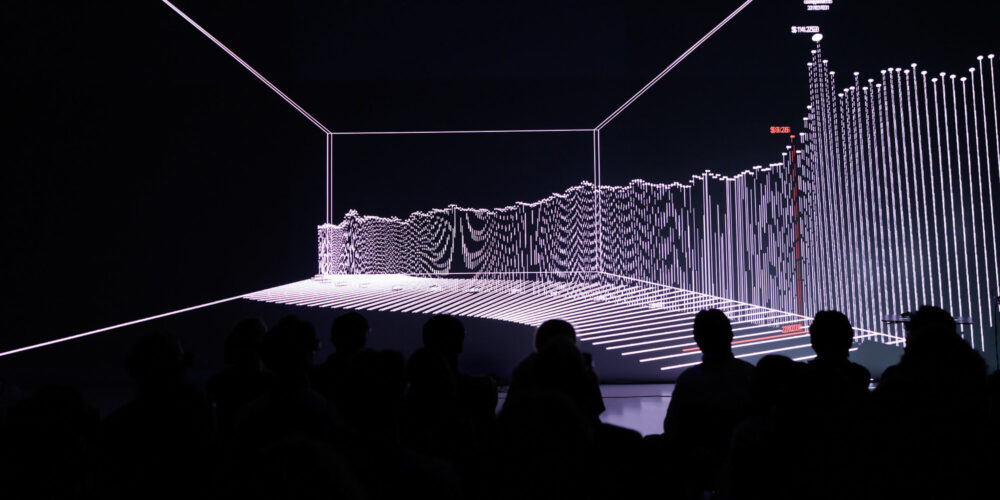
Dataspace: Newspaper of the Future?
How to bring truth to the center of collective perception? Artistic Journalism and Dataspace as ways out of the vacuum of real information.
-
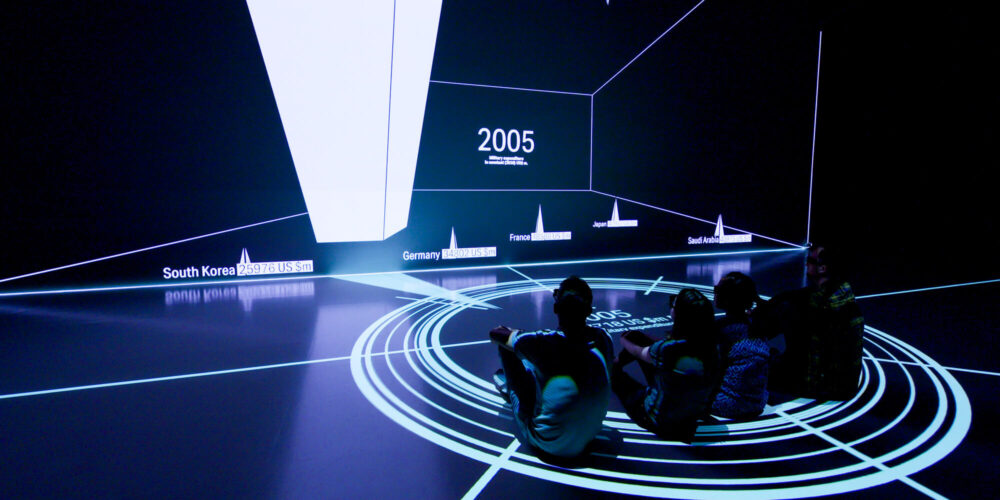
Dataspace: Global Impact of Russia’s War on Ukraine
What does this war mean for each of us? A visualization of facts and figures explains the consequences of an invasion.
-
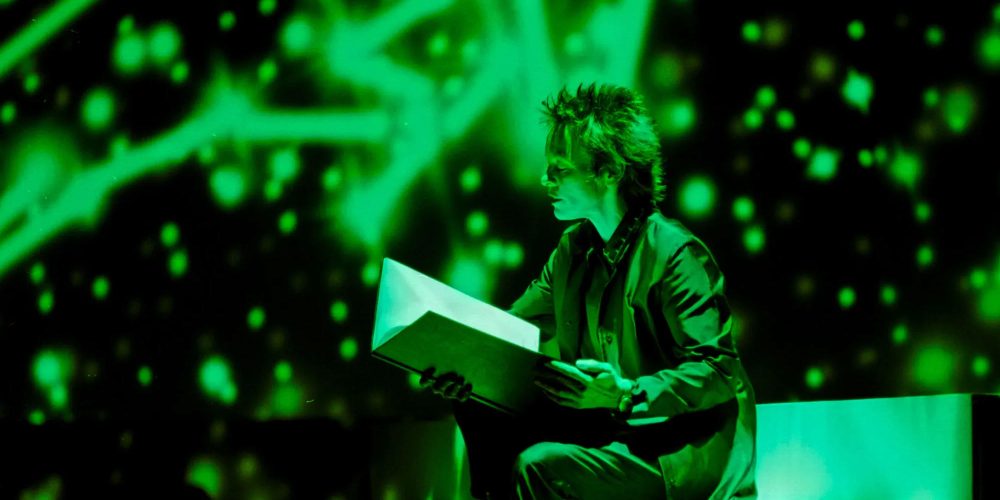
Laurie Anderson: Creating, Evolving, Experiencing
What characterizes a “Pioneer of Media Art”? Laurie Anderson connects art with technology and opens new musical paths with her inventions.
-
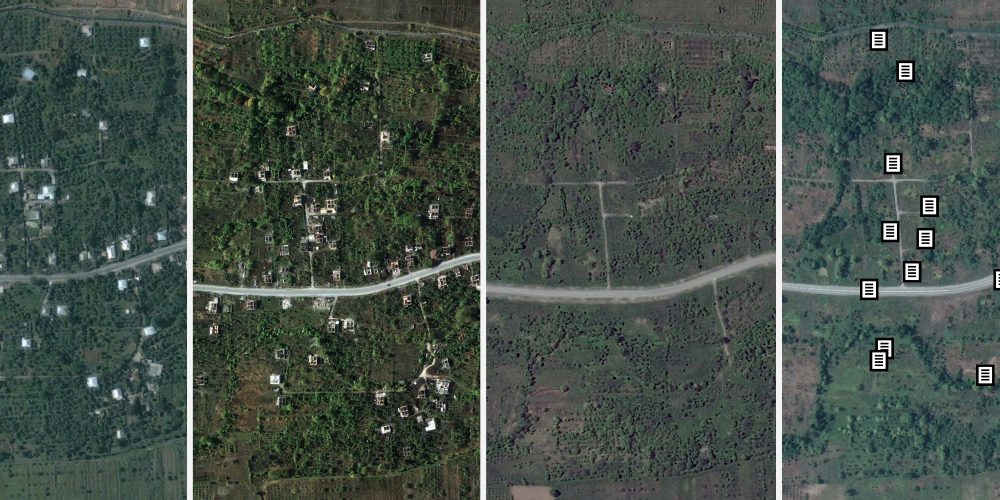
Tools to Confront Unbalanced Realities
What rights do you have in the location of your residence? In his work, artist Irakli Sabekia deals with the spatial and social memory of people who have been forcefully displaced.
-
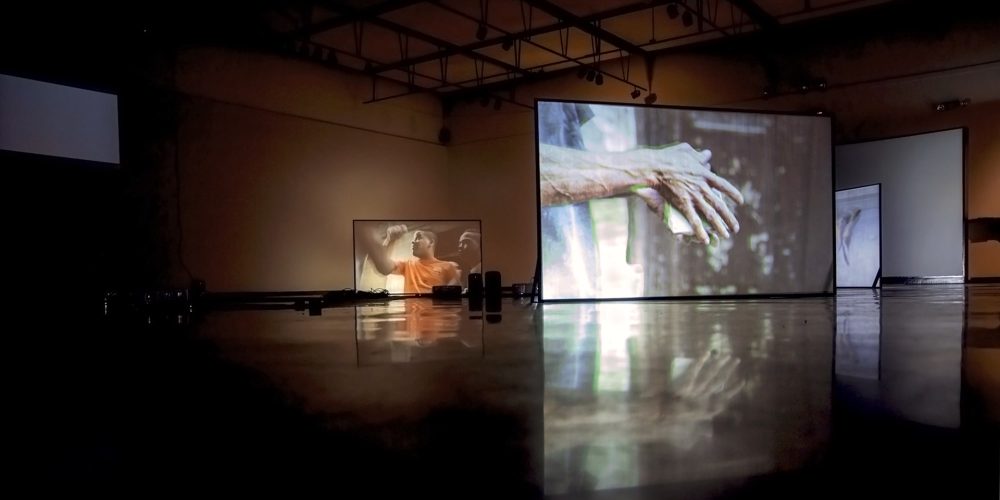
Latin American Media Art: Talent in Abundance
Latin American art meets media art: A new collaboration between CIFO and Ars Electronica aims to support the Latin American art scene and to bring a number of outstanding artists and projects closer to the international audience.
-
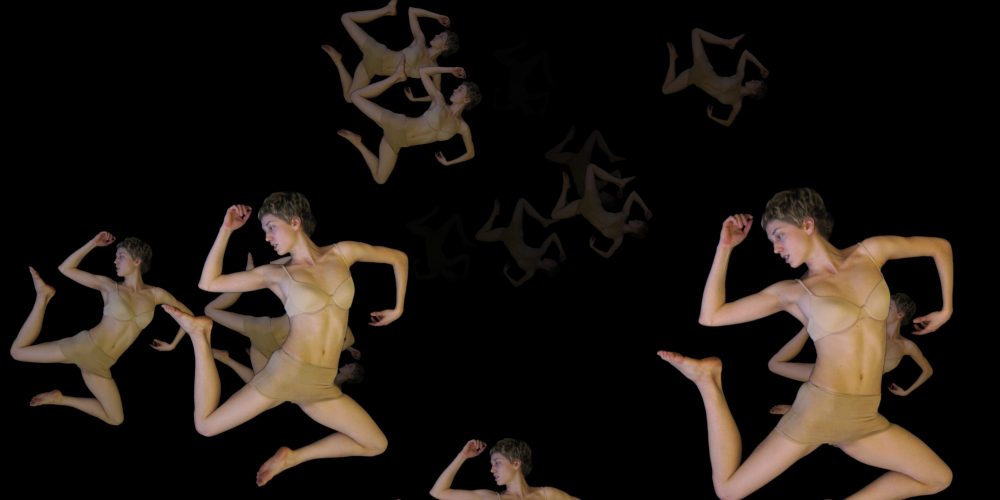
Throwback: Le Sacre du Printemps
In 2006, the Ars Electronica Futurelab collaborated with media artist Klaus Obermaier on a unique production of Igor Stravinsky’s Le Sacre du Printemps.
-
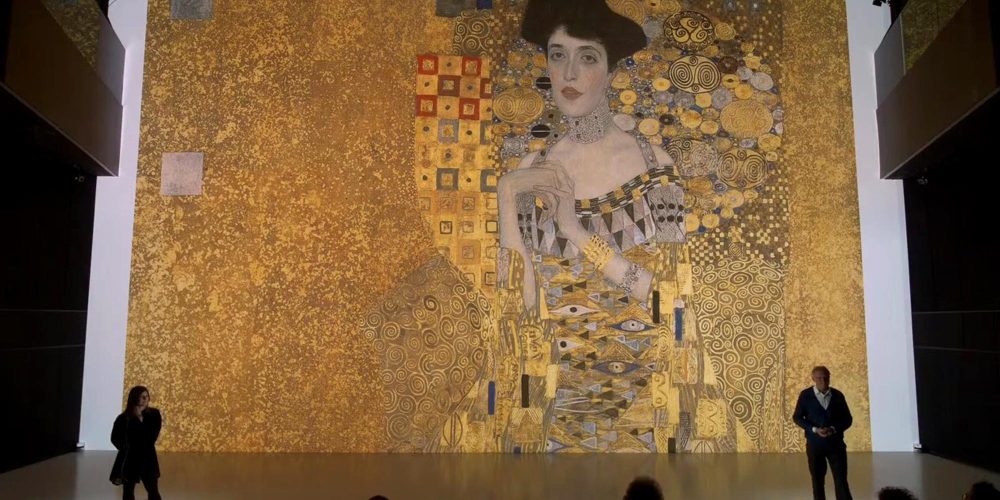
The Woman on the Picture
Gustav Klimt and Rebecca Merlic placed the image of the woman at the centre of their artistic work – an analysis.
-
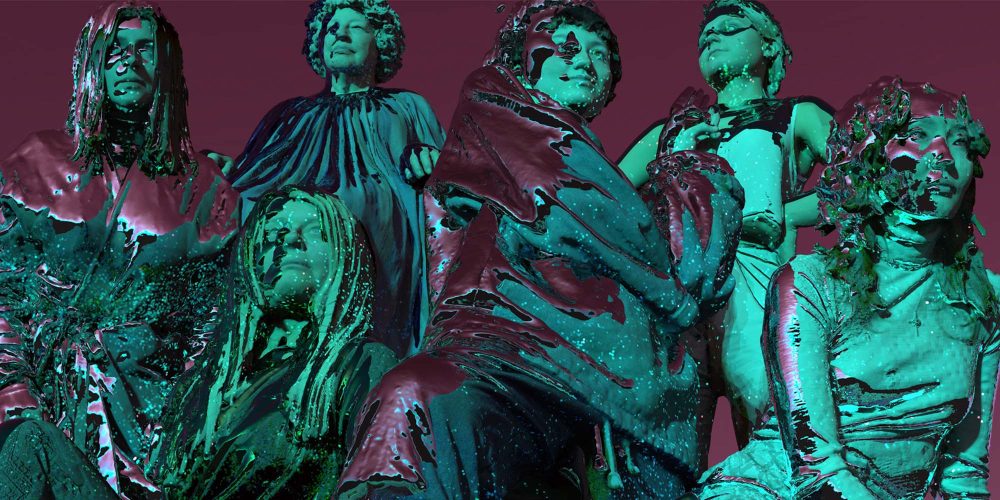
Merlic meets Klimt – the image of women then and now
On April 28, 2022, Gustav Klimt’s images of women will be in the spotlight. In this article, Franz Smola and Rebecca Merlic give you an insight into the topic of images of women.
-
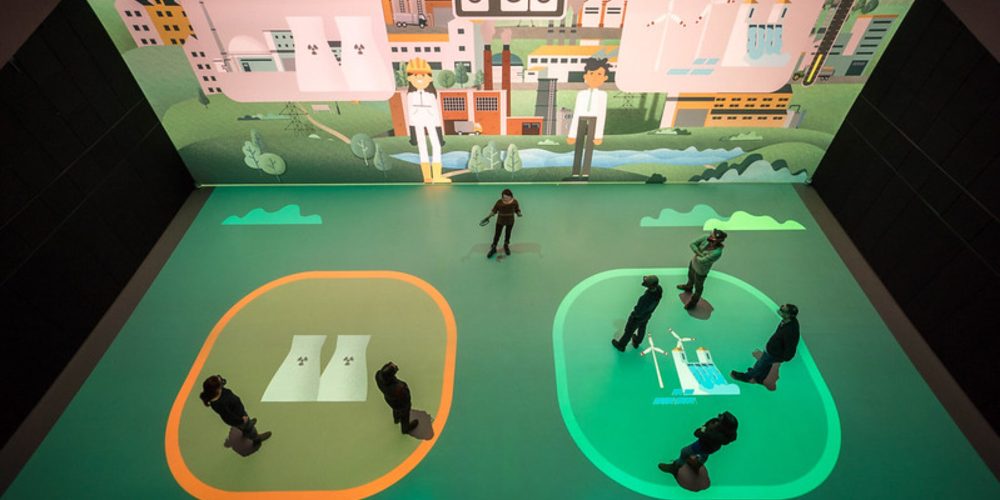
That’s what the new Deep Space EVOLUTION program looks like
New laser projectors, the most powerful graphics cards, a 3D tracking system and a whole range of new interactive programs and spectacular applications. This is Deep Space EVOLUTION.
-
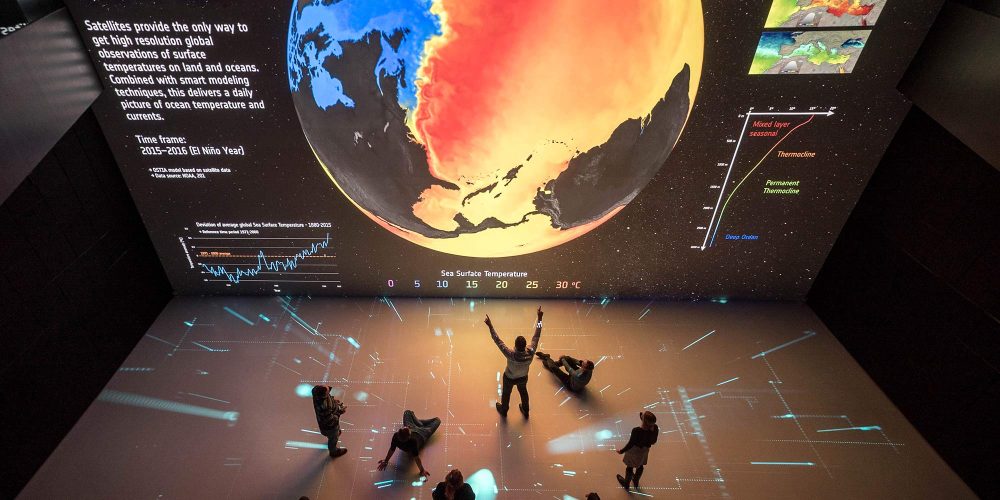
Deep Space EVOLUTION: From the Cave into the Deep Space
With the CAVE, the Ars Electronica Futurelab laid the foundation for this experiential environment in the 1990s. “Deep Space EVOLUTION” is Ars Electronica’s next chapter when it comes to immersive visual worlds.
-
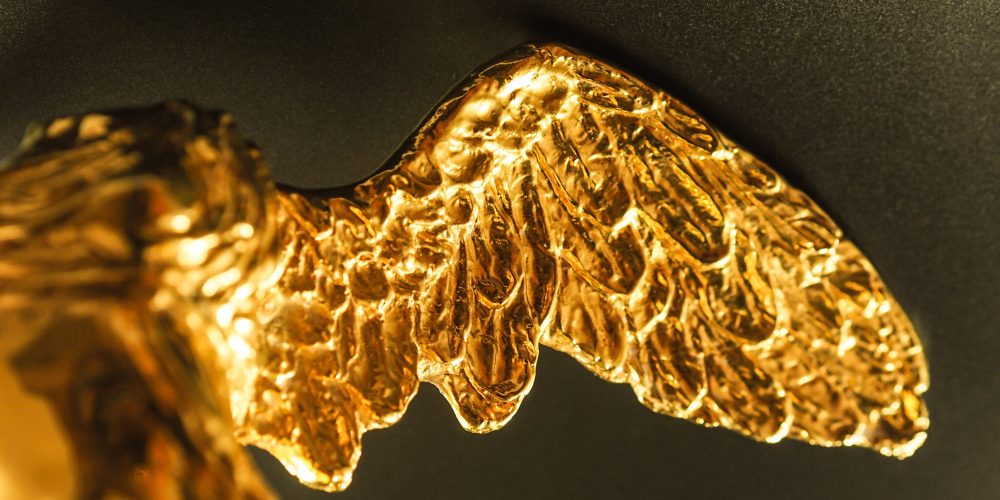
Prix Ars Electronica 2022: Here we go again!
The Prix Ars Electronica kicks off the New Year! For the 35th time in a row, the world’s most traditional media art competition is entering the next round.
-
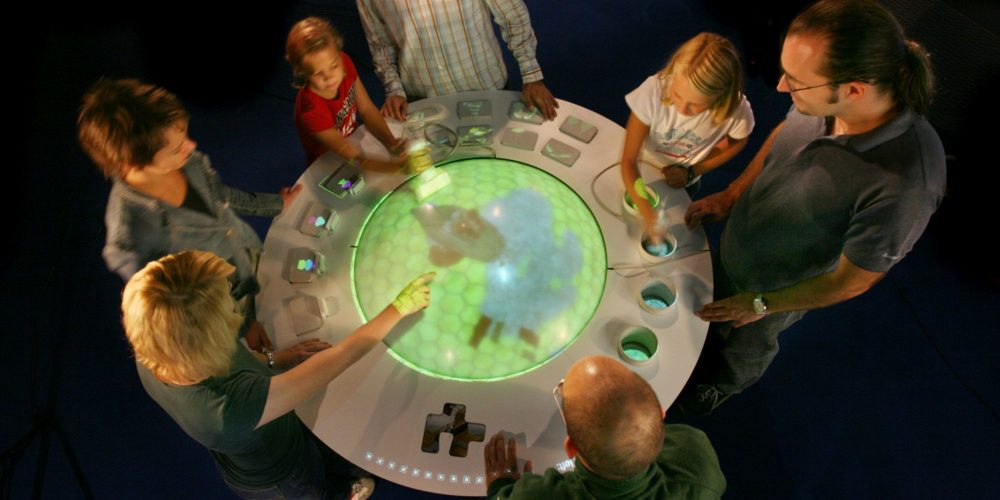
Throwback: Gulliver’s World
Gulliver’s World, the further development of Gulliver’s Box, was a multi-user mixed reality system developed by the Ars Electronica Futurelab.
-

Networked archives and a glimpse into the future
Coronavirus, home office and a hacker attack. What followed was a project of increased collaboration, a dedicated conference at the Ars Electronica Festival and, for the first time, a virtual room in Mozilla Hubs. 2020 was an exciting year for the Ars Electronica archive, which is now available again in its online version, strengthened.
-
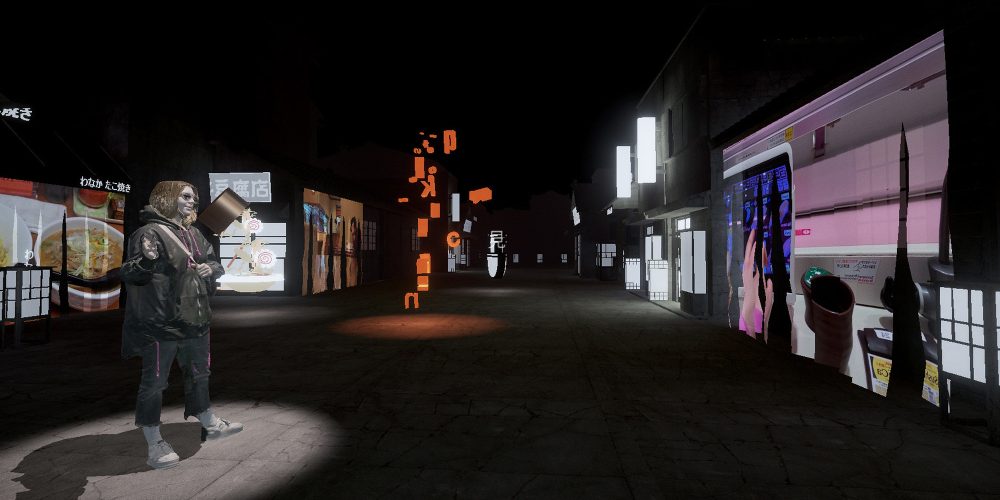
Rebecca Merlic: Making The City Your Own
Imagine giving up everything: Your bed, your kitchen, your bathroom, your apartment. From now on you live, eat and sleep in public space. Rebecca Merlic has been awarded the Marianne.von.Willemer.2020 Prize for Digital Media for the artistic realization of this experiment.
-
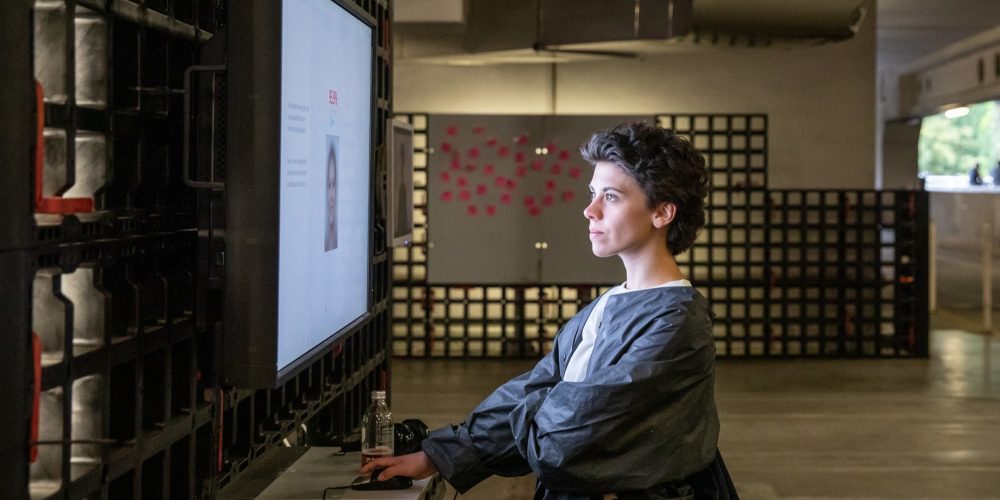
Women in Media Arts: Does AI think like a (white) man?
“Women in Media Arts” is an Ars Electronica database specifically dedicated to women in media arts. In this series, we introduce you to female media artists and their work, starting with the question: Does AI think like a (White) man?
-

The Prix Universe
The Prix Ars Electronica is the most traditional media art competition in the world. The winners will receive the coveted Golden Nicas, prize money up to 10,000 euros per category and a presentation at the prestigious Ars Electronica Festival in Linz.
